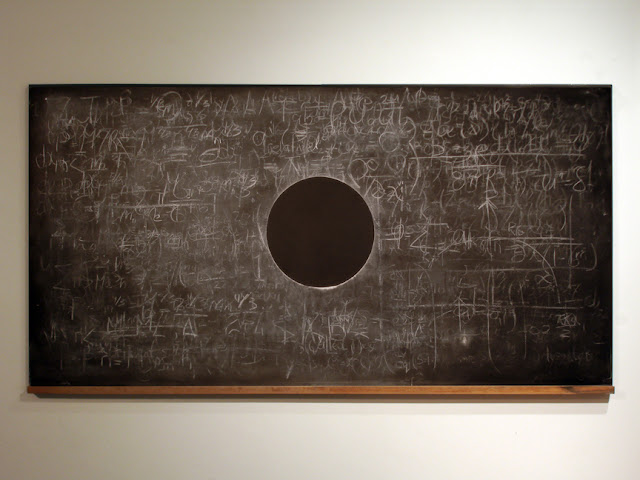kjulm
Saturday, 27 April 2013
Monday, 25 February 2013
Saturday, 5 January 2013
Eclipse
Adam David Brown, Eclipse, blackboard with layering of the scientific notations of Newton, Einstein, and Hawking in order to make a black hole
Tuesday, 18 December 2012
Wednesday, 5 December 2012
Bedscapes (2011)
This is Bedscapes #1-3, an excerpt from the Bedscapes project (2011) by Sara Arnald. The complete project comprises eight pieces which will be shown side by side; big, matte prints, each 2,5 metres wide.
Friday, 23 November 2012
PressPausePlay
"The digital revolution of the last decade has unleashed creativity and talent of people in an unprecedented way, unleashing unlimited creative opportunities. But does democratized culture mean better art, film, music and literature or is true talent instead flooded and drowned in the vast digital ocean of mass culture? Is it cultural democracy or mediocrity? This is the question addressed by PressPausePlay, a documentary film containing interviews with some of the world's most influential creators of the digital era."
Sunday, 4 November 2012
Laurence Demasion
The photographic work of Laurence Demaison (born in France 1965) is exclusively constituted by self-portraits.
Thursday, 18 October 2012
Martin Seeds' iPhone contact prints
This is one of the "Faces" from Martin Seeds' series I have troubles[...], 2012. All of the "Faces" are are presented as 3"x2" iPhone contact prints on 10"x8" silver gelatin paper. Seeds was recently selected to take part in FreshfFaced+WildEyed 2012, the yearly recent graduate exhibition held at The Photographers' Gallery in London.
Sunday, 14 October 2012
Movements of Air Etienne-Jules Marey - Photographer of Fluids
Etienne-Jules Marey (1830-1904)Triangular prism presenting one of its bases to the air stream, fourth and lastversion of the smoke machine equipped with 57 channels1901© Cinémathèque française
"Etienne-Jules Marey (1830-1904) - physiologist, doctor, biomechanics engineer and inventor in 1882 of chronophotography, a technique anticipating cinematography. He devoted three years at the end of his life, from 1899 to 1909, to photographing movements of air.
The beauty and enigmatic character of his shots of smoke are striking to today's visitors, but they also raise numerous questions. Why were these pictures produced ? What was the purpose of the research and with what techniques were they conducted ? Why did he turn to instant photography at a time (1899-1902) when chronophotography and cinematography were already commonly used ? To understand this, one has to go back to the origins of the technique that dominated the physiologist's life and work: the graphic method."
From Musée d'Orsay
Subscribe to:
Comments (Atom)








